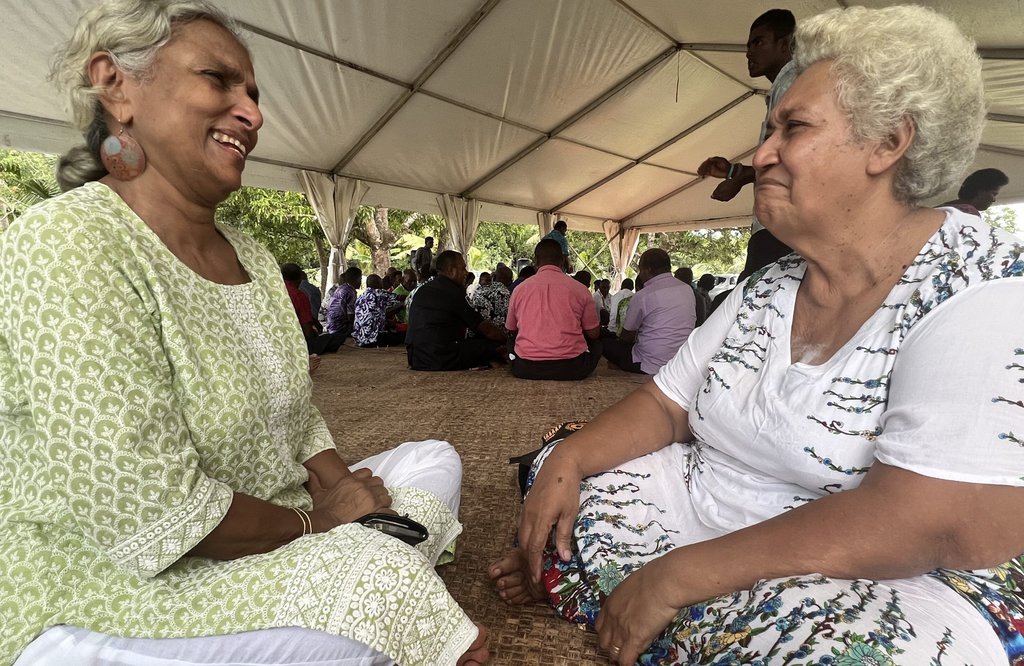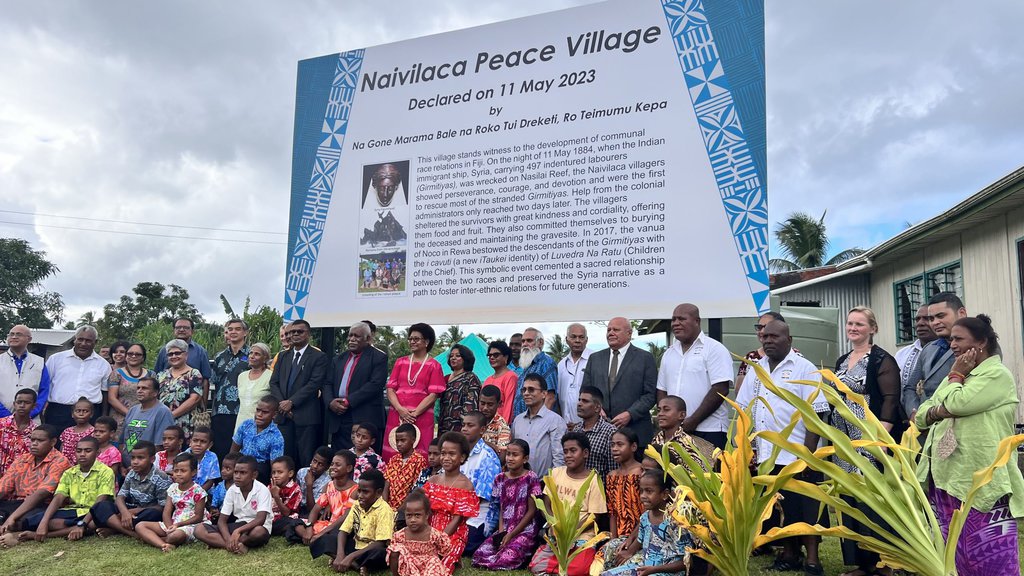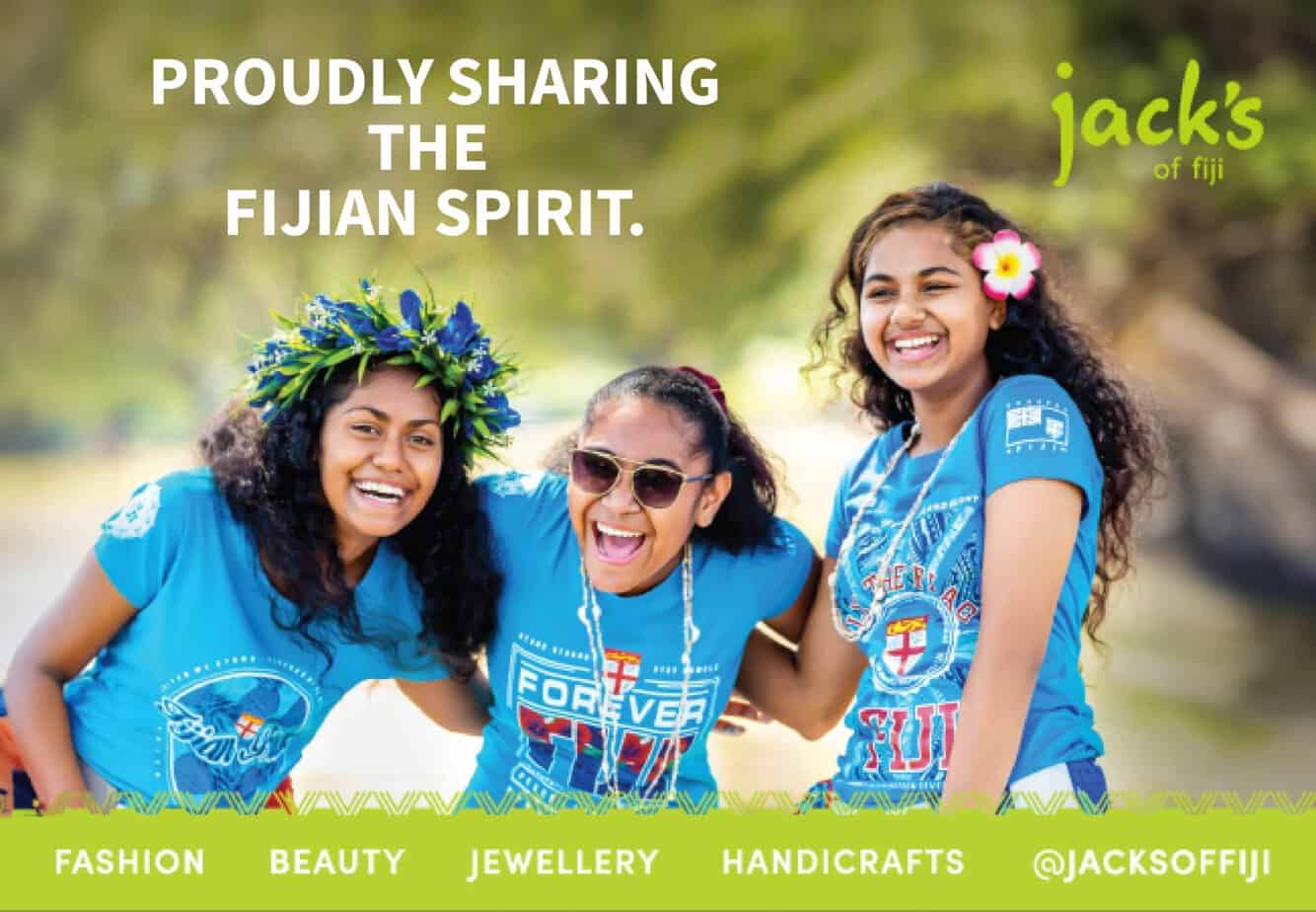By Sera Tikotikovatu-Sefeti
Yesterday marked a special day for the descendants of the Girmityas in Fiji as they commemorated not only the shared pain of their history, but also the deep friendship that they share with indigenous Fijians.
In a moving traditional ceremony in Naivilaca village in Noco, Rewa, home of the people who rescued the Girmityas people from the Syria shipwreck in 1884, Deputy Prime Minister, Biman Prasad, reflected on the deep connection they have with the iTaukei landowners and to the Girmitya experience.
“For Indo-Fijians, Girmit connects us; it is the foundation of our shared language; it is the foundation of our own identity; the sum total of our Girmit experience is our equivalent of the iTaukei sense of vanua,” Prasad said.
“Girmit, we all accept, is a foundation of our identity; it is part of our history that Girmit is what we are today; it is part of our very being.”
The sad history of the Syria wreck was, according to the late Professor Brij Lal, the result of a combination of inexperience, incompetence, and poor navigational facilities. It cost the lives of many Girmityas, whose dreams for a better life were shattered at that devastating event.
Dr William McGregor, the Chief Medical Officer for the then-colony of Fiji, wrote a vivid and emotional account of what he witnessed at the site.
“The scene was simply indescribable, and pictures of it haunt me still like a horrid dream. People falling, fainting, drowning all around, the cries of instant help, uttered in an unknown tongue, but emphasised by looks of agony and the horror of impending death.”
Yesterday’s commemoration at Naivilaca Village was not only about sharing the pain of the past, but also a thanksgiving for the village that was first on the scene.
In his address, Deputy Prime Minister Prasad said, “Our humanity was not harmed but is enriched as a result of it.
“Our forefathers experienced the bravery, compassion, love, and humanity of the Noco Villagers. It is that bravery, that show of love and compassion, that is part of our history, and we recognise and understand that that history, that incident, is part of our journey.”

Amongst those who attended yesterday’s event was the great-grandson of the man who first sighted the shipwreck, Joeli Mateka. He said, “This story was passed down from generation to generation about my grandfather, Ilisavani Jegesa.”
Fijian stories are passed down through storytelling, poetry, and songs, and so it is with the story of the Syria. According to Mataka, their traditional role in the village is ‘gonedau’ (fisherman), and his grandfather woke up early to go fishing.
“It was an early Monday morning, about 4 to 4.30 a.m., when he was out at sea. As he drew closer to the wreck, he heard voices and sounds that he had never heard before, so he went to inspect what the sound was. As he drew closer, the people spotted him and were really happy that a native was there.
“But because it was the first time seeing them, he was so terrified that he quickly ran off. After catching his breath, he went to explain to the villagers their chief, and a messenger was sent to the main village of Burebasaga,” he said.
As this was happening, the men of the village set off on their own rescue mission. At this point, nothing hindered them, not the language barrier nor the situation, but the basic human instinct to help save the lives of as many people as they could. That act of not just bravery, but love in its purest form, is what cemented the deep friendship and understanding between the people of Rewa and Girmitya, dubbing them the Luvedra na Ratu (children of the Chiefs).
Govin Singh, one of the descendants of the Girmityas present, explained the importance of this title to them, as it meant they belonged.
“It was cast in stones, knowing our historical journey. In Fiji, the constitution says you can be called a Fijian or anybody, but that can be thrown too; it can be unstable, and who knows what can happen. But this one was culturally done, so we have accepted it,” Singh said.
The Girmityas are now part of the people of Rewa, and this momentous occasion, was marked by the unveiling of the village, declaring it “Naivilaca Peace Village” by the BurebasagaHigh Chief, Na Gone Marama Bale na Roko Tui Dreketi, Ro Teimumu Kepa.
Emotions were running high as academic Dr. Padma Lal, the late Dr Brij Lal’s wife, and Mafi Vudi, embraced and shared tears of gratitude as they reflected on what this meant to them.
“I think this is a significant event in the sense that we are slowly but steadily getting to that stage, where we do recognise ourselves as one,” reflected Dr Lal.
“For too long, our history has been a divided history, and to really have an understanding of each other is wonderful.”
Mafi Vudi, who was married to the village, shares, “I have eight children, but two of them are fluent in Hindi, and I find myself asking them, ‘Why are you speaking in Hindi?’
“My husband always tells me, ‘Don’t growl at them, because we rescued them from Syria, so maybe some of the descendants give us a part of their language to understand Hindi.”
Naivilaca Peace Village has cemented its place in history, strengthening relationships that have withstood the test of time.



